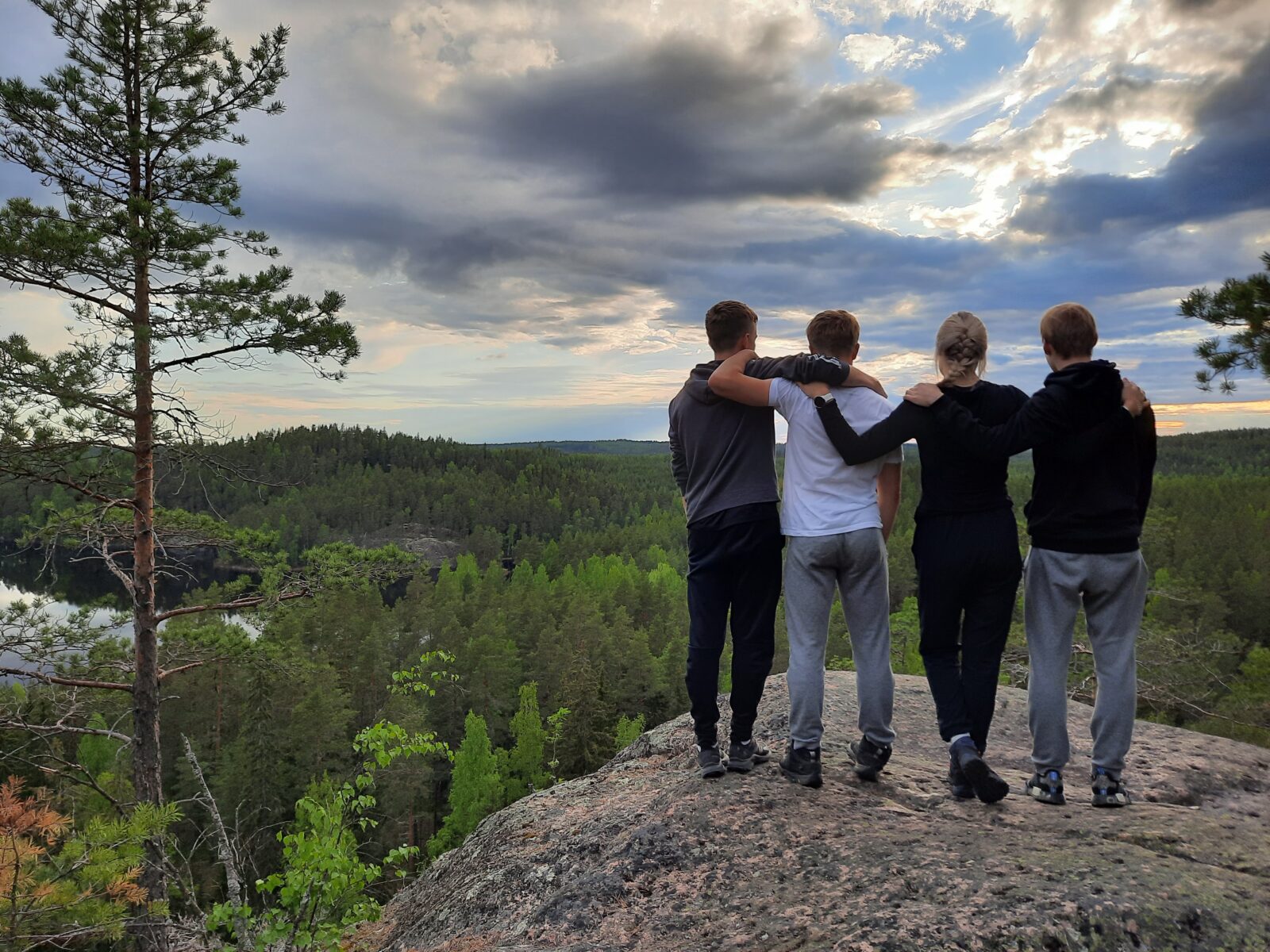‘Nature affects my moods. Whenever I feel frustrated or angry at home, I go out. I find a quiet place where I can clear my head for a moment.’
This is how an adolescent in Year 9 described the effects of nature on their well-being. The example illustrates the role that the green spaces in our living environment play in helping us to regulate our emotions. The answers and data collected in the course of the NATUREWELL survey suggest that young people in Lahti have a spontaneous everyday relationship with nature. Based on the sample of more than 1,000 adolescents, the majority of secondary school-age children spend time in a variety of natural environments – usually in the vicinity of their home – on a weekly basis.
These local green spaces provide an escape from daily routines, responsibilities, and social norms. Having a sense of self and the ability to express it become increasingly important as young people come under more and more pressure from society. Many seek solitude in nature to organize their thoughts and reflect on their life. On the other hand, sharing experiences of nature can help to build togetherness with friends or family. It is often easier to talk about serious topics while sitting around a campfire or walking side by side along a hiking trail.
Focusing on sensory experiences – enjoying the scenery and the sounds, smells and feel of nature – can take the mind off worries. Many young people feel that spending time in a natural environment helps them to concentrate. Multisensory nature experiences contribute to the perception of well-being. Nature soothes and relaxes, lifts the spirits, relieves stress and gives energy. Fresh air and pleasant surroundings also increase motivation for exercise.
Still, not all young people regularly spend time outdoors. According to the survey, the more active outdoor enthusiasts are girls, members of the native-born population, children of educated and well-to-do parents, as well as those youngsters who consider themselves generally happy and healthy. The biggest obstacle for young people to spend time outdoors is lack of time due to the pull of video games or other hobbies.
Helping young people to build a relationship with nature
Building a relationship with nature is a process that needs to be actively promoted not just in childhood but also during teenage years when interest in the outdoors can wane. Having easy access to nature is especially important from the perspective of children, adolescents, and the elderly. With the coronavirus pandemic having caused a dip in the well-being of girls in particular, it is important to recognize the uplifting power of nature.
Nature connectedness can be promoted by means of, for example, adventure education. The effects of hiking on the well-being of both Year 9 and vocational school students have recently been studied in Lahti. The excursions had a positive effect on, among other things, the youngsters’ belief in their own abilities, group interaction and team spirit. Researchers are currently analyzing how exposure to nature during the hikes affected the microbiota in adolescents’ bodies. Based on previous studies, extensive exposure to diverse natural microbiota helps to build resistance against immune system disorders such as allergies.
Recognizing the interconnections between human health and the health of the planet is critical for our future. Positive nature experiences are important not just for our own well-being but also for making us want to take care of our environment. The Lahti Region’s new ten-year Health and Environment Programme, subtitled Nature Step to Health, is designed to promote biodiversity and slow down climate change while also preventing chronic diseases.

